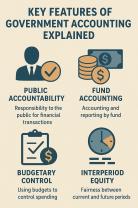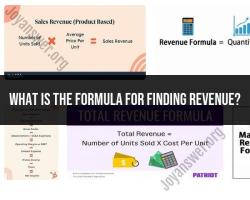What is annuity lottery?
An annuity lottery is a type of lottery in which the prize is awarded as a series of periodic payments, typically paid out over a number of years, rather than as a lump sum. The term "annuity" refers to these periodic payments, which are often made annually but can also be made monthly or in other intervals.
Here's how an annuity lottery typically works:
Prize Structure: The lottery's prize structure is designed so that the jackpot or top prize is paid out as an annuity. For example, instead of winning a $10 million lump sum, the winner may receive $500,000 per year for 20 years.
Fixed or Increasing Payments: Annuity payments can be either fixed (the same amount every year) or increasing (payments start lower and increase over time). The choice of payment structure may vary depending on the lottery and its rules.
Tax Considerations: In many cases, annuity payments are subject to income tax. The tax treatment can vary by location, so winners should consult with tax professionals to understand the tax implications of their annuity winnings.
Inheritance and Beneficiaries: Depending on the lottery rules and the winner's preferences, annuity payments may be inheritable. This means that if the winner passes away, their designated beneficiaries or heirs may continue to receive the remaining annuity payments.
Cash Option: In most annuity lotteries, winners have the option to choose a one-time cash payment instead of the annuity. The cash option is typically less than the total annuity value but provides immediate access to a significant sum of money.
Security: Annuity payments are often backed by the financial stability of the state or organization running the lottery, providing a level of security for the winner.
Annuity lotteries are designed to provide winners with long-term financial stability and income, but they also come with certain trade-offs. Winners receive their prize over time, and the actual value of the annuity may be affected by factors like inflation and changes in the economy. Some winners prefer the lump sum option to have greater control over their finances or to make immediate investments or purchases.
It's important for individuals who participate in annuity lotteries to carefully read the lottery's rules and understand the implications of choosing the annuity option versus the cash option. Additionally, seeking financial and legal advice before making a decision can help winners make informed choices about managing their winnings.
How Lottery Annuity Payouts Work Over Time
When you win the lottery and choose the annuity payout option, you will receive a series of payments over a period of time, typically 20 or 30 years. The first payment is usually the largest, and the subsequent payments gradually increase each year.
The amount of each payment is based on the total amount of your winnings, the interest rate, and the number of years over which the payments are spread out.
For example, if you win a $100 million lottery jackpot and choose the annuity payout option, you might receive a first payment of $5 million, followed by 29 annual payments of $3.5 million each.
Choosing Between Annuity and Lump Sum Lottery Payout
When you win the lottery, you have the choice of receiving your winnings as a lump sum or as an annuity.
The lump sum payout is a single payment that you receive all at once. The annuity payout is a series of payments that you receive over a period of time.
There are a few factors to consider when choosing between a lump sum and an annuity payout:
- Your financial goals: If you need the money to pay off debt or buy a house, then a lump sum payout may be a better option for you. If you are planning for retirement, then an annuity payout may be a better option for you.
- Your risk tolerance: A lump sum payout is a riskier option than an annuity payout. If you invest the lump sum payout wisely, you could potentially earn more money over time. However, if you lose the money, you will not have any other income to rely on. An annuity payout provides you with a guaranteed stream of income over a period of time.
- Your tax situation: The lump sum payout is taxed as ordinary income, while the annuity payout is taxed over time. This means that you may pay less in taxes if you choose the annuity payout option.
Selling Future Lottery Annuity Payments for Cash
Another option that you have is to sell your future lottery annuity payments for cash. This is done through a process called annuitization.
Annuitization companies will offer you a lump sum payment in exchange for your future annuity payments. The amount of the lump sum payment will be based on the total amount of your future payments, the interest rate, and the number of years over which the payments are spread out.
Annuitization can be a good option for people who need the money immediately or who do not want to deal with the risk of investing the lump sum payout. However, it is important to note that you will typically receive less money if you sell your future annuity payments for cash.
Conclusion
When choosing between a lump sum and an annuity payout, or whether to sell your future annuity payments for cash, it is important to weigh all of the factors involved. There is no right or wrong answer, and the best option for you will depend on your individual circumstances.












